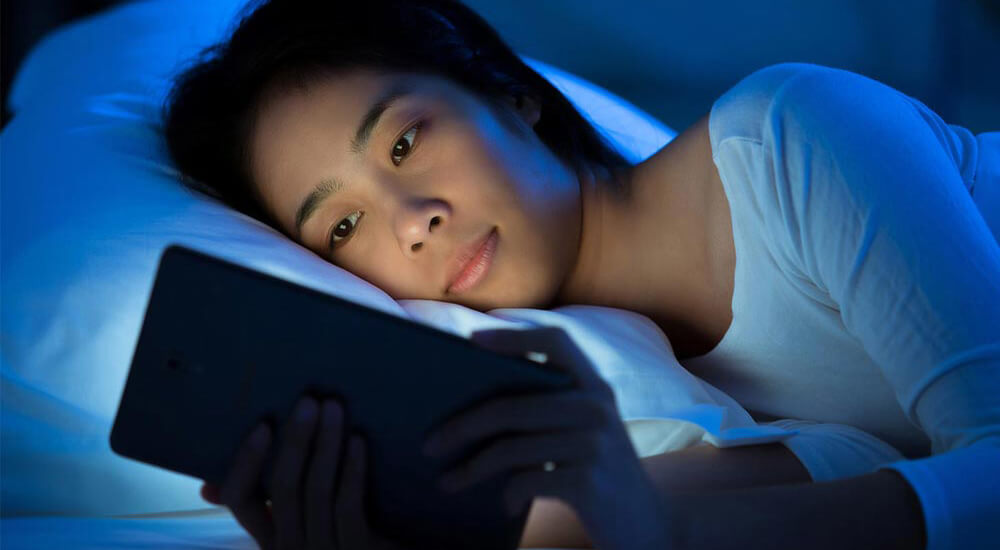We’ve all heard the warnings about cell phone use. Research is showing that brain activity, reaction times, and sleep patterns are all negatively impacted. But, just as blue light can affect your sleep cycle, it can also disrupt the circadian rhythm of skin cells.
This means that even if we’re diligent skincare wellness warriors, our skin could be subtly suffering.
What is blue light and why should you care?
Depending on individual lifestyle choices, somewhere around 40% of your life is spent in front of some sort of screen. That is a distressing thought. Coronavirus lockdown certainly hasn’t helped these statistics. Working, socializing, even learning has moved online, and that means more screen time.
Our laptops, phones, tablets, TVs and even LED light bulbs are all sources of blue light. And now that we’re tethered to those devices, should we be more concerned about the effect on our skin?
Blue light is a “high-energy, short-wavelength light”, says Shari Marchbein, a board-certified dermatologist and clinical assistant professor of dermatology at New York University School of Medicine.
What’s skin got to do with blue light?
Studies are concluding that post-acne scarring and hyperpigmentation tend to be worse on the side of the face where people hold their mobile phone. Because the cell phone is so close to the surface of the skin, the blue light is directly absorbed. Your laptop might be less of a concern, however, because of the distance.

Blue light effect on skin
Blue light destroys collagen through oxidative stress. A chemical in skin called flavin absorbs blue light. The reaction that takes place during that absorption produces unstable oxygen molecules (free radicals) that damage the skin, leading to skin laxity and pre-mature wrinkling. The strongest evidence we have is that blue light contributes to brown spots on the skin and hyperpigmentation such as melasma. There’s also evidence that as blue light penetrates the skin, reactive oxygen species are generated, which leads to DNA damage, thereby causing inflammation and the breakdown of healthy collagen and elastin, as well as hyperpigmentation.
What is the skin care industry doing to help remedy blue light exposure?
Blue light glasses may be trendy and fantastic for stopping blue light, but they don’t do much to shield the rest of your face and body. High profile skin-care brands are coming out with blue-light-fighting products as a way to remedy this new skin antagonist.
Dermatologists advise choosing a sunscreen with iron oxide and antioxidants to assist in the guard against blue light rays.
While more research needs to be conducted, eye strain, cataracts, glaucoma, and a host of other eye diseases can all be linked back to excess device use (and improper lighting). Advice? Try to stay 30 cm away from your screen and take frequent eye breaks. Experts suggest lowering the brightness level on your screens to 50 percent or go on the darker “Night Shift” setting to help prevent skin damage.
I’m sure some of you have recently booked a skin treatment at Celebrity Laser & Skin Care or invested in a new skin-loving product. When you consider how much time and energy (and of course, dolla bills!) we spend on looking our best, it seems a shame to let the light from our phones and laptop undo it all. Let’s be skin responsible and avoid blue light where possible!


